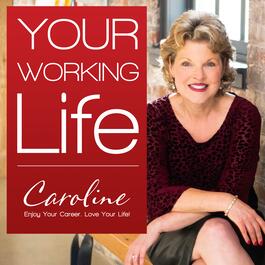
Iris Bohnet and Siri Chilazi are leading gender experts and Harvard researchers. Their work centers on data-driven evidence to create accessible strategies to bridge the gender gap at work and create environments based on fairness. What makes Iris and Siri’s work different is that they focus on changing behaviors around equality, not attitudes. As they show, this helps us move from virtuous intentions to visible action without trying to tackle people’s deeply held beliefs. Iris and Siri explore these issues in their upcoming book MAKE WORK FAIR: Data-Driven Design for Real Results (Harper Business; January 28, 2025; must-read nonfiction title by the Next Big Idea Club) It’s cliché to say that the numbers don’t lie, but the fact is, they don’t: · McKinsey’s latest Women in the Workplace report shows that while women today make up 29% of C-suite positions (compared with just 17% in 2015), women are still progressing slower earlier in the corporate pipeline, at the entry and manager levels. · New research has also come to light that women leaders face 30 different kinds of discrimination in the workplace Topics Iris and Siri can expand on include: People will always be biased—why we need to focus on behaviors, not attitudes to achieve fairness How to move from virtual signaling to concrete action Why we need to make the workplace compatible to women, not the other way around Your gain does not equal my loss—debunking common myths about workplace fairness The hiring process is broken and how to fix it Bias from above, bias from below—the vicious cycle that keeps women from leadership positions The middle management gender gap and how it impacts women’s career trajectories How flexibility creates fairness and unleashes talents It’s possible to fix America’s parental leave problem—here’s how Why we need norm entrepreneurs and how to become one Why we can’t settle for moral outrage anymore—to truly eliminate bad behavior in the workplace we need to make the change we want to see **Next Big Idea Club pick for January 2025 Women have certainly come a long way in the workplace. When the U.S. Census Bureau first started including data on women-owned businesses in 1972, there were only about 400,000 female business owners in the country. Fast forward to 2024, and there are over 13 million women-owned businesses, and when it comes to the Fortune 500, women CEOs now account for 10.4% of the list. At the same time, the gender gap—in terms of pay and leadership positions—still hasn’t been bridged, despite the best intentions of many companies. How do we achieve equality in the workplace so that everyone has the opportunity to work better and smarter—and more fairly? Iris Bohnet and Siri Chilazi, two leading gender experts and Harvard researchers, explore the concept of fairness in the workplace and offer novel solutions for professionals in their new book, MAKE WORK FAIR: Data-Driven Design for Real Results (Harper Business; January 28, 2025). As Bohnet and Chilazi explain, many well-meaning individuals and companies invest their time and resources in diversity, equity, and inclusion (DEI) initiatives with less than stellar results. Because inequity is built into the structures, processes, and environments of our workplaces, adding these programs has been ineffective and often becomes a burden passed off to the individuals they are meant to help. In MAKE WORK FAIR, Bohnet and Chilazi offer data-backed, actionable solutions that build fairness into the very fabric of the workplace. Their methods—tested at many organizations and grounded in data proven to work in the real world—focus on changing behaviors, not attitudes. This helps us move from virtuous intentions to visible action without trying to tackle people’s deeply held beliefs. Using Bohnet and Chilazi’s framework, employees at all levels can embed fairness into their everyday practices. “For us, making work fair means designing workplaces where everyone can thrive and perform at their best,” Bohnet and Chilazi write. “This means giving all people—regardless of gender, race, ethnicity, sexual orientation, or any other aspect of their identity or background—access to a playing field where some people are not unfairly advantaged in a way they didn’t earn.” Offering an evidence-based blueprint, MAKE WORK FAIR shows you how to make fairness at work a reality, no matter your role, seniority, responsibilities, or where you are in the world. As Bohnet and Chilazi remind us, “To make change for good, we have to keep at it. The price of not persisting is simply too high—for each of us, companies and governments, and societies across the globe. Unfair work keeps the right people from doing the right job the right way in the right positions. That’s what we call a market failure in economics. So, let’s not keep failing.”
From "Your Working Life"


Comments
Add comment Feedback